NU664C Week 2 Quiz
Questions
- A patient who was admitted yesterday with an adjustment disorder and depressed mood has not left his or her room. The psychiatric-mental health nurse’s most appropriate approach at meal time today is to respond:
a, “I will bring your tray to your room, if it will make you more comfortable.”
b, “I will walk with you to the dining room and sit with you while you eat.”
c, “Where would you like to eat your meal this noon?”
d, “You will feel better if you go to the dining room and eat with the others.”
- A 17-year-old, female patient with anorexia nervosa has just been released from the hospital. To facilitate recovery at home, the psychiatric-mental health nurse instructs the family to:
a, discourage the patient from sneaking food between meals, by unobtrusively reducing her access to the kitchen.
b, encourage the patient’s interest in menu planning, food magazines, and cooking lessons, by leaving information and materials around the house.
c, permit the patient to eat her meals privately in her bedroom to discourage family preoccupation with meals.
d, recommend that the patient joins in routine family meals and clears the dishes after dinner, even if she does not eat.
- A supervisor observes inconsistency in the psychiatric-mental health nurse’s behavior toward a patient; the nurse is unreasonably concerned, overly kind, or irrationally hostile. The most appropriate explanation is that the nurse is displaying:
a, countertransference.
b, empathic resonance.
c, splitting behavior.
d, transference.
- The first step in the treatment of incest is to:
a, believe the child who reports the activity.
b, notify the proper authorities.
c, objectively confront the accused family member.
d, remove the child from the home.
- A couple in counseling reports fighting with their son when they are angry with each other. This behavior typifies:
a, coalition.
b, indirect communication.
c, transference.
d, triangulation.
- The severe feeling of restlessness produced by some psychotropic medications, which is often misinterpreted by patients as anxiety or a recurrence of psychiatric symptoms, is known as:
a, akathisia.
b, akinesia.
c, bradykinesia.
d, dystonia.
- During an initial patient interview, the psychiatric and mental health nurse begins by asking the patient to describe his or her:
a, current situation.
b, feelings about the current situation.
c, personal history.
d, thoughts about the current situation.
- A female patient reports an intense, overwhelming fear of driving a car. The fear has disrupted all elements of the patient’s life. The patient does not go to the grocery store unless someone transports her, has relinquished her job, and has few social contacts. The patient’s treatment plan includes:
a, assertiveness training.
b, biofeedback.
c, stress management assistance.
d, systematic desensitization.
- A short-term goal for a patient with Alzheimer’s disease is:
a, improved functioning in the least restrictive environment.
b, improved problem solving in activities of daily living.
c, increased self-esteem and improved self-concept.
b, regained sensory perception and cognitive function.
- Older adults have reached Erikson’s developmental stage of ego integrity when they:
a, acknowledge that one cannot get everything one wants in life.
b, assess their lives and identify actions that had value and purpose.
c, express a wish that life could be relived differently.
d, feel that they are being punished for things they did not do.
Solution to Week 2 Quiz
Answers
- b, “I will walk with you to the dining room and sit with you while you eat.”
Rationale: Encouraging socialization while providing support helps the patient engage in normal activities without forcing them. Isolation can worsen symptoms of depression. - d, “Recommend that the patient joins in routine family meals and clears the dishes after dinner, even if she does not eat.”
Rationale: Family meals help normalize eating behaviors and reduce secrecy, a common issue in anorexia nervosa.
Get Answers with rationale to all NU664C (Week II) 22 questions for $20.00
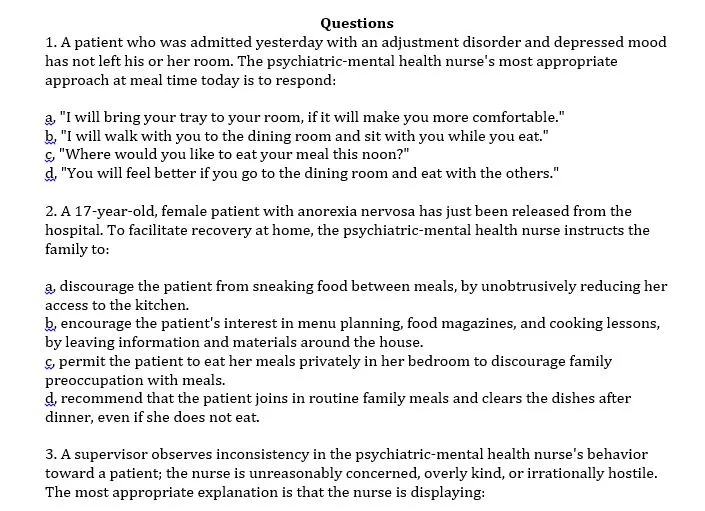

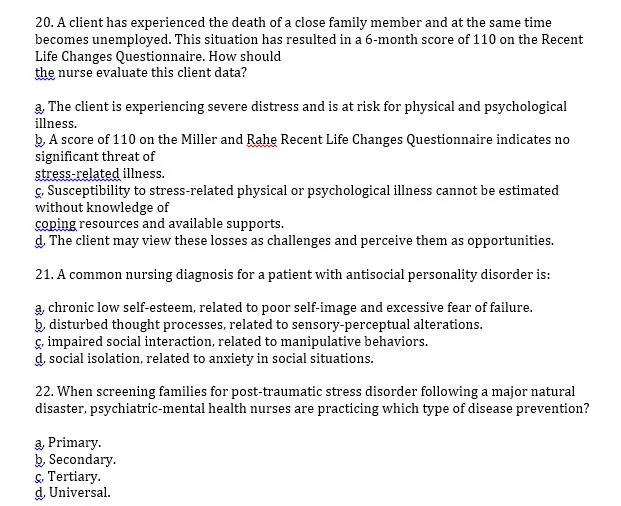
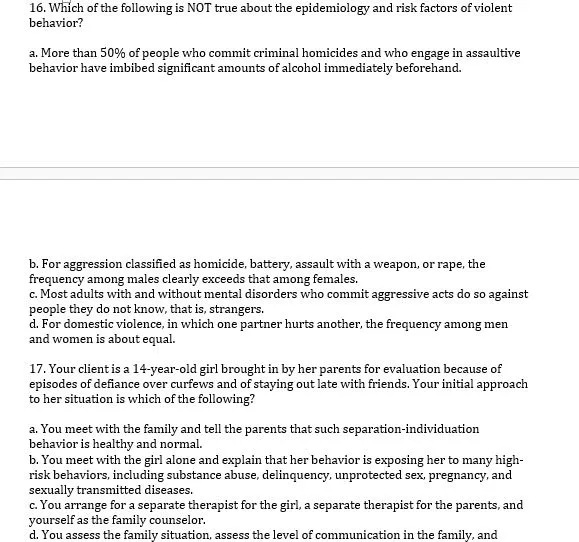
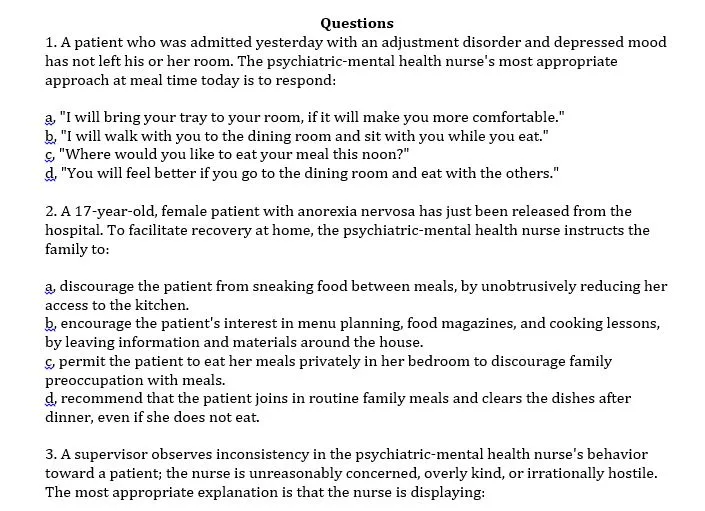
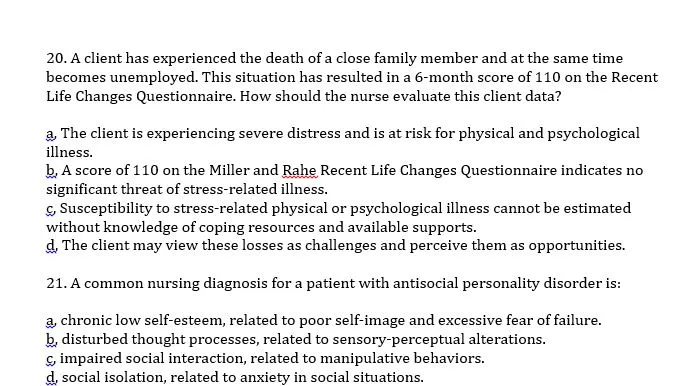
Reviews
There are no reviews yet.